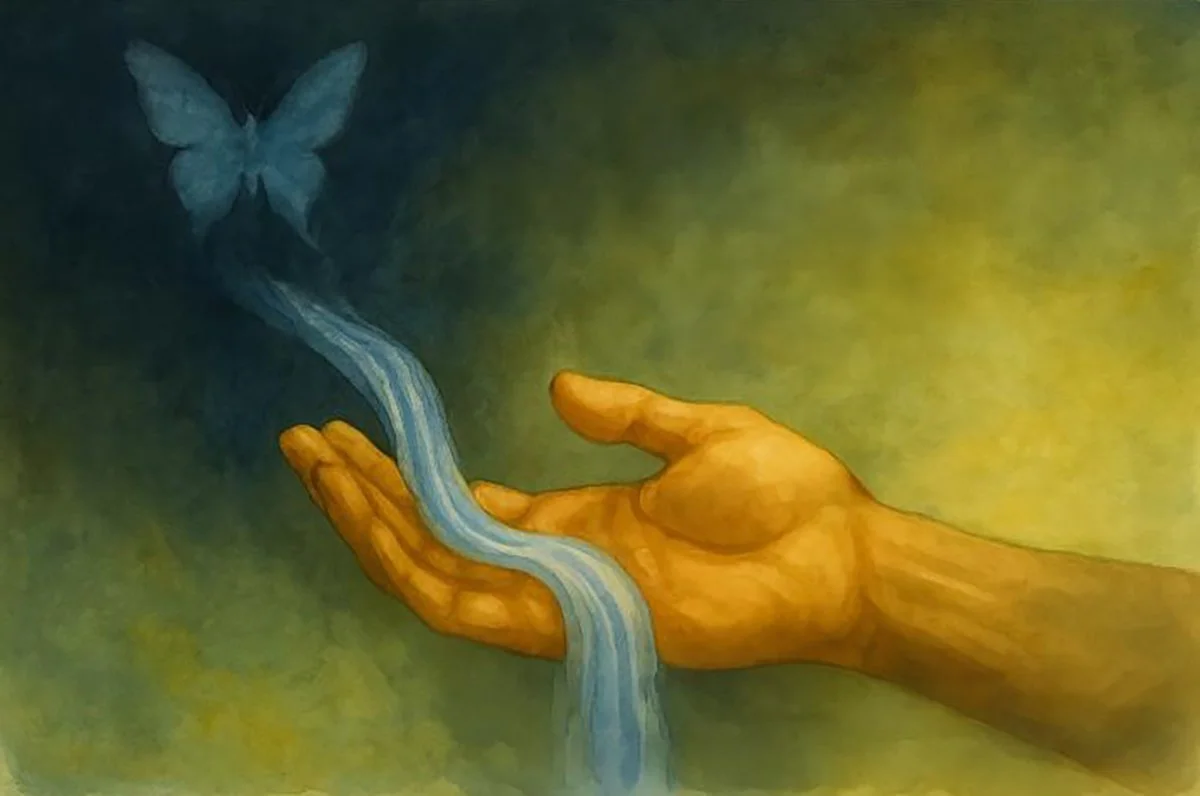Lilith and the Unclenched Hand
There are stories that reach beyond the mind and speak directly to the soul. George MacDonald’s Lilith is one of them. It begins in a library, a room of knowledge, and ends in a house of rest, where souls lie sleeping in the quiet radiance of love. Between those two rooms lies the entire journey of transformation.
Mr Vane, the solitary seeker, follows a mysterious librarian named Raven through a mirror into another world. It is not a world of fantasy in the usual sense but a mirror of the inner life. The journey is inward, not outward. Through this shimmering threshold, MacDonald invites us into a realm where death is not the end but the beginning, and where awakening is found only by first consenting to sleep.
Along the way, Vane meets a tribe of radiant children, the Little Ones, who live in innocent harmony. He meets Lona, the one whose wisdom shines with the light of the soul. And finally, he meets Lilith, the dark queen of Bulika, the mythic first woman who once refused to yield. Beautiful, proud, and wounded, Lilith embodies the ancient human wound: the will that will not open.
She carries in her clenched hand the water of life, but she will not release it. The land withers under her grasp. Only when she falls into the hands of Mara, the Lady of Sorrow, does she begin to soften. In the house of tears, she is asked to surrender, to open her hand, but cannot. “Cut it off,” she pleads. “I cannot open it.” And when her hand is severed, the living water flows out, healing the whole land.
It is one of the most powerful images of surrender ever written. The unclenching of the hand is the surrender of the false self, the yielding of control, the releasing of pride, the opening that allows love to move again.
MacDonald’s vision is not of condemnation but of redemption. Even Lilith, the archetype of rebellion, is not cast into hell but laid gently to rest in the House of Sleep, where she will one day awaken healed. This is the heart of Christian mysticism: that every soul, however darkened, still carries the seed of divine possibility. The universe bends not toward punishment, but toward restoration.
In the language of Chrysalis Sanctuary, Lilith’s story is the story of the chrysalis itself, the dark, enclosed place where transformation happens unseen. The hand must open before the wings can form. The water of life must flow before anything new can emerge.
Each of us carries a Lilith within, a part that clings, resists, or fears to yield. And each of us carries a Mara within, the quiet, patient compassion that waits beside our sorrow until we are ready to weep. When the tears come, the grasping ends, and the healing begins.
To live the contemplative life is to walk, as Vane did, through the mirror, out of knowledge and into being out of striving and into surrender. It is to discover that what we called death is actually rest, that what we called loss is the opening of the hand, and that the House of Sleep is not escape but awakening into the real.
Perhaps that is what MacDonald was whispering through his dream: 6
that even our darkness is holy ground,
that love is patient beyond all measure,
and that the world is waiting for one unclenched hand.
Bruce & Sue Reflect
Bruce: “You know, Sue, that bit about Lilith not being able to open her hand, that hit me. We all do that, don’t we? Hold on too tight.”
Sue: “Oh yes, love. We cling to control like it’s keeping us safe, but half the time it’s just blocking the flow. The hand’s got to open before the heart does.”
Bruce: “Hard to do, though. Letting go sounds lovely till something’s actually taken away.”
Sue: “That’s when grace sneaks in, Bruce. Not when we’re strong, but when we finally stop gripping. That’s when the water runs free.”

